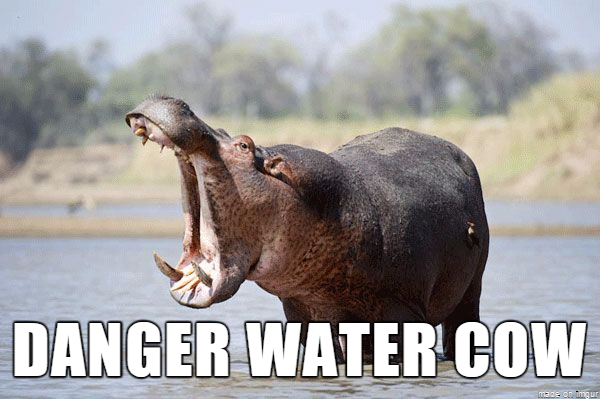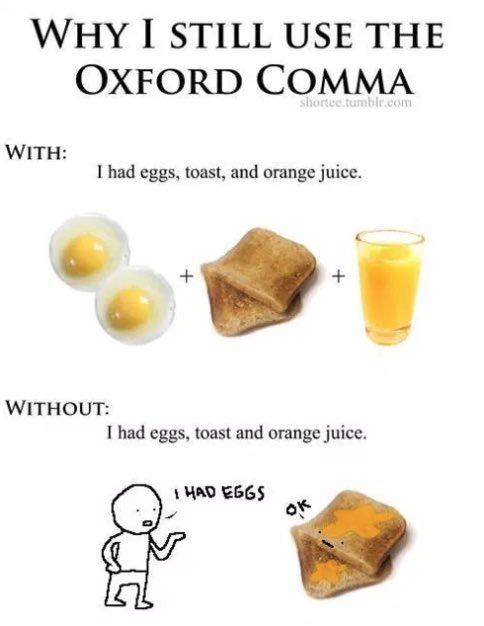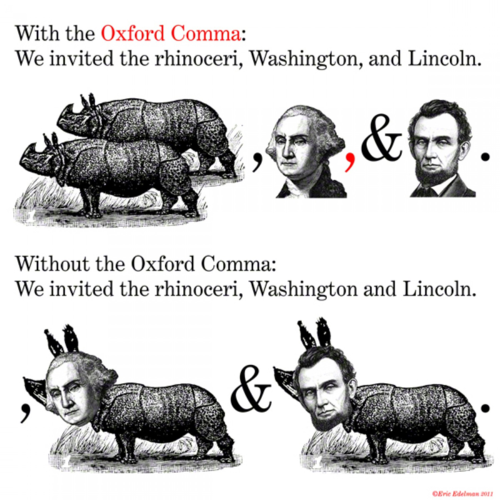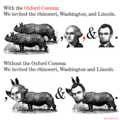Difference between revisions of "Category:Grammar"
Jump to navigation
Jump to search
(Created page with "Category: Main ==Suffixes== * ''-n'' and ''-en'' suffixes: [https://www.grammarphobia.com/blog/2016/03/en-plural.html Why "children," not "childs"?] on The Grammarphobia...") |
|||
| (8 intermediate revisions by the same user not shown) | |||
| Line 1: | Line 1: | ||
[[Category: | [[Category: Linguistics]] | ||
==Nouns== | |||
* [https://www.newyorker.com/elements/lab-notes/why-nouns-slow-us-down-and-why-linguistics-might-be-in-a-bubble Why nouns slow us down and why linguistics might be in a bubble] by Alan Burdick at The New Yorker explains a study that looks at the amount of time that it takes for people to formulate the next word in a sentence, and finds that choosing a noun takes longer in the majority of languages studied than choosing a verb does. It concludes that's because nouns convey more information, and thus, y'all want to pick the right one. (It also mentions that linguistics is studying too many thriving Western languages and not enough dying or non-Western languages, and may be mostly talking to itself.) | |||
* [https://en.wikipedia.org/wiki/Kenning Kennings] are "circumlocution, in the form of a compound that employs figurative language in place of a more concrete single-word noun". There's a [https://en.wikipedia.org/wiki/List_of_kennings list of kennings on Wikipedia] if you want to lose the rest of the day. Importantly, though, kennings are making a comeback in the form of [http://emgn.com/entertainment/30-animals-as-they-should-be-named/ goofy names for animals that have names] such as "danger noodle" and "sea flap-flap". | |||
[[File:Renaming-animals-emgn-35.png | alt="A hippo, or Danger Water Cow. A good example of a kenning."]] | |||
==Suffixes== | |||
* ''-n'' and ''-en'' suffixes: [https://www.grammarphobia.com/blog/2016/03/en-plural.html Why "children," not "childs"?] on The Grammarphobia Blog explains how, throughout the formation of English, these suffixes were used as plurals before ''-s'' became the dominant plural form. But ''-en'' has also been used for diminutive forms (kitten, maiden), and for "this is made of that" indicators (leaden, wooden) so it's no wonder English is so damn confusing. | |||
==Oxford Commas== | |||
[[File:Oxford_comma_oj.png | border | 500px | alt="Why I still use the Oxford Comma: With: I had eggs, toast, and orange juice. Illustration of eggs, a plus symbol, toast, a plus symbol, and a glass of orange juice. Without: I had eggs, toast and orange juice. Illustration of a man saying the phrase I had eggs to a piece of toast with orange juice poured on it, which replies OK. Credited to shortee.tumblr.com"]] | |||
= | [[File: Oxford_comma_rhinos.png | border | 500px |alt="With the Oxford Comma: we invited the rhinoceri, Washington, and Lincoln. Illustration of two rhinos, a comma, President Washington's profile, a comma, an ampersand, and President Lincoln's profile. Without the Oxford Comma: We invited two rhinoceri, Washington and Lincoln. Illustration of a rhino with President Washington's head, an ampersand, and a rhino with President Lincoln's head. Credited to Eric Edelman, 2011."]] | ||
Latest revision as of 21:08, 22 October 2019
Nouns
- Why nouns slow us down and why linguistics might be in a bubble by Alan Burdick at The New Yorker explains a study that looks at the amount of time that it takes for people to formulate the next word in a sentence, and finds that choosing a noun takes longer in the majority of languages studied than choosing a verb does. It concludes that's because nouns convey more information, and thus, y'all want to pick the right one. (It also mentions that linguistics is studying too many thriving Western languages and not enough dying or non-Western languages, and may be mostly talking to itself.)
- Kennings are "circumlocution, in the form of a compound that employs figurative language in place of a more concrete single-word noun". There's a list of kennings on Wikipedia if you want to lose the rest of the day. Importantly, though, kennings are making a comeback in the form of goofy names for animals that have names such as "danger noodle" and "sea flap-flap".
Suffixes
- -n and -en suffixes: Why "children," not "childs"? on The Grammarphobia Blog explains how, throughout the formation of English, these suffixes were used as plurals before -s became the dominant plural form. But -en has also been used for diminutive forms (kitten, maiden), and for "this is made of that" indicators (leaden, wooden) so it's no wonder English is so damn confusing.
Oxford Commas
Media in category "Grammar"
The following 2 files are in this category, out of 2 total.
- Oxford comma oj.png 484 × 626; 186 KB
- Oxford comma rhinos.png 1,500 × 1,500; 1.61 MB




